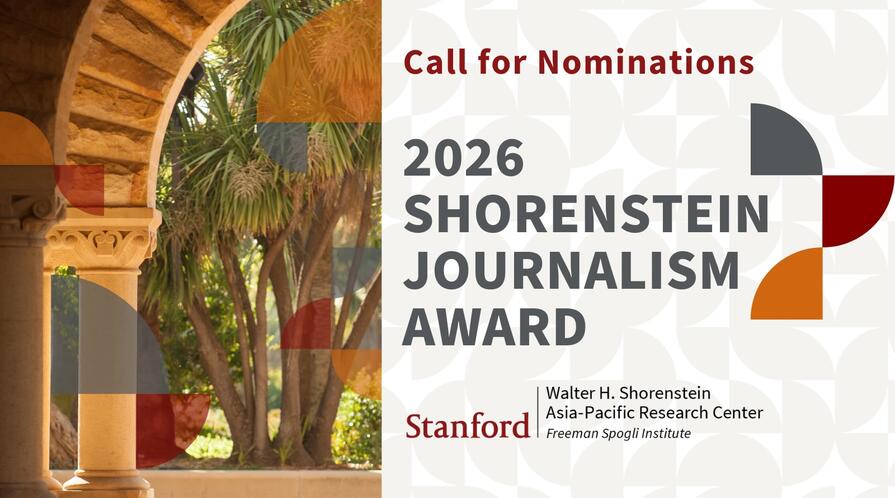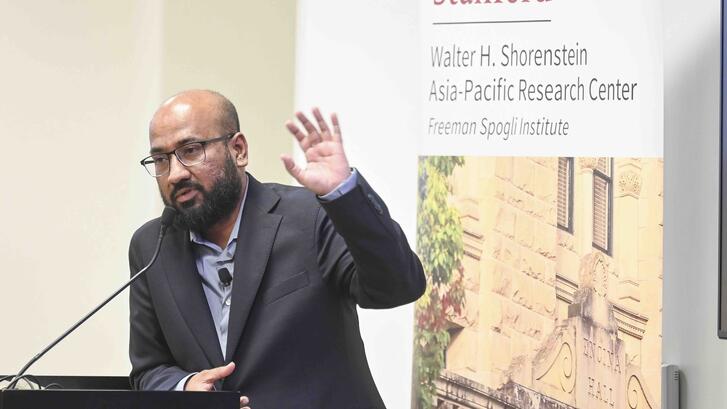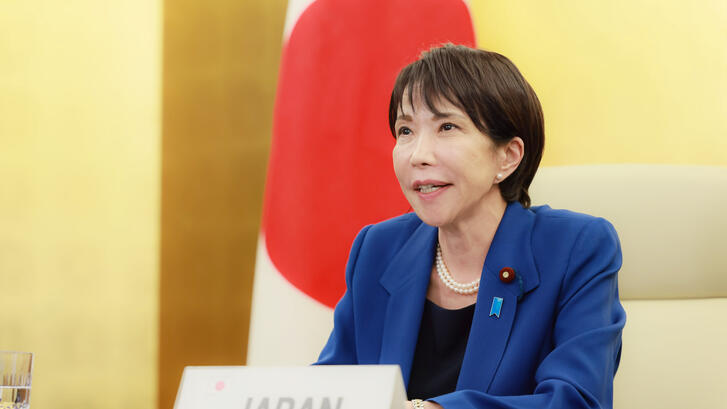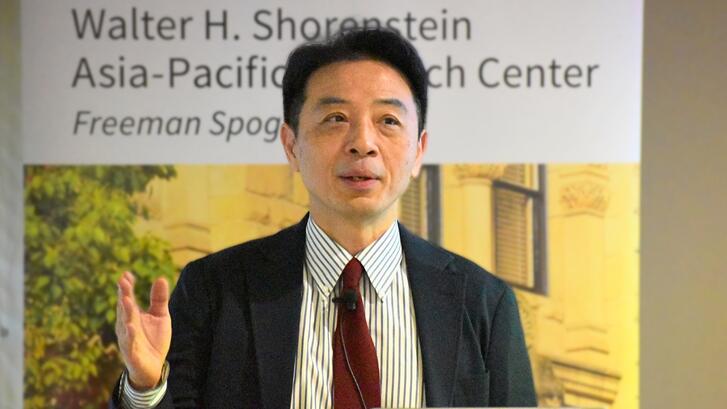2026 Shorenstein Journalism Award Open for Nominations
Stanford University's Walter H. Shorenstein Asia-Pacific Research Center (APARC) is pleased to invite nominations for the 2026 Shorenstein Journalism Award. The award, which carries a cash prize of US$10,000, recognizes outstanding journalists and news media outlets for excellence in covering the complexities of the Asia-Pacific region. The 2026 award will honor a Western news media outlet or a journalist whose substantial body of work has primarily appeared in Western news media. APARC welcomes award nomination submissions from news editors, publishers, scholars, news outlets, journalism organizations, and entities focused on researching and analyzing the Asia-Pacific region. Entries are due by February 15, 2026.
The award defines the Asia-Pacific region broadly as including Northeast Asia, Southeast Asia, South Asia, Central Asia, and Australasia. Both individual journalists with a considerable body of work and news media outlets are eligible for the award. Nominees’ work may be in traditional forms of print or broadcast journalism and/or in new forms of multimedia journalism. The Award Selection Committee oversees the judging of nominees and is responsible for selecting honorees.
An annual tradition since 2002, the award honors the legacy of Mr. Walter H. Shorenstein, APARC's benefactor, and his twin passions for promoting excellence in journalism and understanding of Asia. Throughout its history, the award has recognized world-class journalists and news media who push the boundaries of coverage of the Asia-Pacific region and champion press freedom and human rights.
Recent honorees include Netra News, Bangladesh's premier public interest journalism outlet; Chris Buckley, the New York Times' chief China correspondent; The Caravan, India’s esteemed magazine of long-form journalism; Emily Feng, then NPR's Beijing correspondent; and Nobel Laureate Maria Ressa, CEO and president of the Philippines-based news organization Rappler. Visit the award page to learn more.
Award nominations are accepted electronically through Sunday, February 15, 2026, at 11:59 PM PST. Visit the award nomination entry page for information about the nomination procedures and to submit an entry.
APARC will announce the winner by May 2026.
Please direct all inquiries to aparc-communications@stanford.edu.
Read More

Sponsored by Stanford University’s Shorenstein Asia-Pacific Research Center, the annual award recognizes outstanding journalists and news media outlets for excellence in covering the Asia-Pacific region. News editors, publishers, scholars, and organizations focused on Asia research and analysis are invited to submit nominations for the 2026 award through February 15, 2026.















